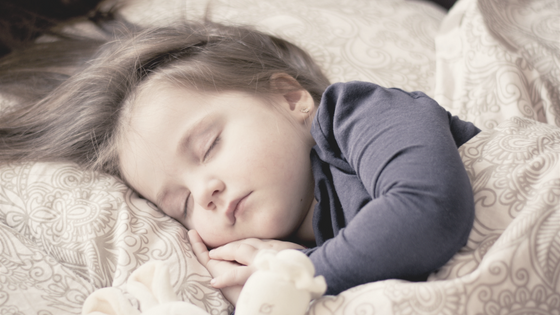In the United States, studies show that low-income children as young as 12 months are not sleeping the recommended number of hours. Sleep researchers know sleep is connected to growth, development, health and learning.

Monica Roosa Ordway, PhD, APRN, PPCNP-BC is an Assistant Professor at Yale University, School of Nursing currently studying stress and sleep in infants and toddlers. Her research is suggesting long-term consequences of inadequate sleep duration may be costlier than we know — and it’s more often affecting lower-income families. She explains, “Sleep deprivation concerns are compounded when families face socioeconomic stress and adversity. While we must take into consideration cultural and environmental influences on sleep, sleep is a no cost, modifiable factor that may help to buffer some of the negative health consequences of socioeconomic adversity.” Healthy sleep improves multiple facets of physical and mental health, as World Sleep Society’s guidelines outline.
Infant Sleep & Stress
World Sleep Society recommends that infants (3–12 months) should sleep 14–15 hours per night, while toddlers (1–3 years) should be sleeping 12–14 hours. Dr. Ordway’s current study is searching for biomarkers of stress in saliva and hair samples of 12- to 15-month-old children, with a follow-up when they are 24–27 months old. She says of her study, “The families in my study are recruited from low-income communities in New Haven, CT. The most important result from my study to date is the identification of how little sleep the children in my study are receiving compared to the recommendations. More results are coming in and have not been published yet, but the preliminary data on associations between sleep and stress response are promising.” What this could mean, is that researchers would have biological evidence that lack of sleep may do harm to developing minds and bodies and that ensuring adequate sleep can provide protection for young children in dealing with stress.
Highlight from the Abstract
The experience of socioeconomic adversity is a chronic stressor that may result in sleep deficiency, including shortened sleep duration and poor sleep efficiency beginning early in life. Poor sleep health during early critical developmental periods, such as toddlerhood, may interfere with children’s ability to maintain homeostasis and compound their risk for stress-related health problems. Our study focuses on understanding the longitudinal relationships among sleep, multiple biomarkers of stress, and health among toddlers living in socioeconomically disadvantaged homes.
Parents Influencing Sleep
Previously, Dr. Ordway’s pre- and postdoctoral work was in the area of parent-child interactions in child development. She went on to focus on ‘parental reflective functioning’ as a way of helping parents understand their children’s mental states and how thoughts, feelings, emotions and intentions underlie behavior. As part of her mentors’ research teams, Dr. Ordway’s earlier research concluded that enhanced parental reflective functioning helps to develop children’s attachment and self-regulation.
As she transitioned into a faculty position at Yale University School of Nursing, Dr. Ordway states, “I was considering interventions that would help me bring this message to primary care settings and the topic of sleep made perfect sense. By enhancing parental reflective functioning and positive parenting, parents could better recognize children’s sleep cues, develop bedtime routines and set limits around bedtime. I was also influenced by the literature on toxic stress in children.” The three buffering mechanisms for toxic stress are responsive caregiving, supportive environments and nutrition. “I began to see sleep as a low-cost, modifiable potential mechanism to buffer toxic stress. I was not able to find much in the literature on sleep and stress response in very young children.” The gap in the literature coupled with Dr. Ordway’s interest in determining whether healthy sleep could indeed buffer toxic stress drove her research question: What characteristics of sleep are most associated with stress response early in childhood?
“As I looked into sleep in early childhood, I was struck by the studies that suggest sleep disparities occur as early as one year of age,” Dr. Ordway says. “By teaching parents about healthy sleep, our hope is to find more toddlers and young children getting the recommended hours of sleep.” Once Dr. Ordway’s findings are published, the next steps are to work with a pediatric sleep research team to develop a sleep health promotion intervention that will be adaptable to primary care settings. She looks forward to publishing her full findings regarding the biomarkers showing up in sleep deprived children.
Dr. Ordway is sure to sleep 7–8 hours per night and makes sleep a priority by accepting she may not be able to get everything done in one day. “It’s not always easy to stop what I’m doing and plan out time for sleep,” Dr. Ordway finishes, “but it is important in order to live a healthy lifestyle.”
The professional highlighted above represents the many leaders belonging to World Sleep Society’s membership, committed to advancing sleep medicine and research worldwide. Sleep is one of the three pillars of good health, along with a balanced diet and regular exercise. To learn more about World Sleep Society and its biennial sleep congress, visit worldsleepsociety.org. #WorldSleep2019 #WorldSleepDay
1. Sleep, biological stress, and health among toddlers living in socioeconomically disadvantaged homes: A research protocol, Ordway, et. Al. Research in Nursing & Health. 2nd ed. (2017): 489–500.
Originally published at medium.com


